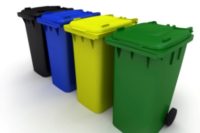Who says, “You can’t teach old dogs new tricks”? Our three-year-old daughter Isla is teaching us many amazing “new tricks” every day, so why not on the job? I have a little story to tell about this and more.
A “fresh new turn”
My professional life just took a huge, wonderfully fresh new turn when I began as the Director of Environment, Health & Safety (EHS) at the State University of New York (SUNY) at Plattsburgh.
Any idea where Plattsburgh is?
It’s a small city next door to Quebec, Canada, in the northeast corner of New York State — nestled alongside Lake Champlain, across from Burlington, Vermont, just above the Adirondack Mountains. A lovely place, if you like four strong seasons and can endure cold, sometimes frigid, snowy winters. SUNY Plattsburgh is my undergraduate alma mater from 1978 — a lifetime ago. It has the distinction of offering one of the first environmental science programs in the nation, including an intriguing satellite campus, the Miner Center in Chazy, which was my motivation for attending.
A “great twist”
Life and work in the public sector is a great twist for me after working 25 years in the private sector, mostly in the vaunted corporate world of a multinational company. After a series of huge mistakes, my company made it easy for me to leave, fulfilling my dream of starting anew at age 50. I never wanted to spend my entire career in corporate America, but becoming a “card carrying” public union member seemed highly unlikely, yet it was all part of the deal.
What a blast! My new job “fits me like a glove.”
After 25 years of comprehensive health and safety practice with extensive global travels, working alongside a wide range of environmental staff, lawyers, engineers and business people, my new job is a very comfortable fit. Most of the managerial and technical skills I learned and practiced in the private sector are directly applicable to my new setting. We have many similar challenges and parallel approaches to tackling problems, along with the same obstacles and routine frustrations, highlighted by occasional moments of elation and success.
Common strategies
Our management strategies have much more in common than you might think; like so many aspects of life, when considered more universally. My experience in both private and public sectors is based on tackling problems by prioritizing and breaking them down, analyzing the process, getting the right people involved, working towards consensus solutions, ensuring various needs are satisfied and can be checked periodically… then, we move on to the next opportunity. Not exactly rocket science, but since people and issues are often different, requiring more customized solutions, it makes for good learning. After all, learning to interact with difficult people is often the key to our success, or the seeds of our failure.
Transition time
My long commute on the beautiful Adirondack Northway provides time to reflect, listen to audio books and music, and strategize about the upcoming day or rehash recent events. By the time I arrive home at our log house surrounded by the forest and mountains, I think how fortunate we are to have made this transition from “city slickers” to “country bumpkins.”
However, we are still very much in touch with the world and our EHS profession after taking important “time off” to re-assess everything. Would I continue — or throw in the towel for something different at age 50? Not quite. I’m glad this great opportunity, which surfaced in a most unlikely Web site, is enabling me to open my eyes, envisioning new ways, meeting new people, applying my special expertise at a dynamic, mid-size college whose primary mission is devoted to undergraduate teaching.
How cool! Serendipity can happen, so long as we prepare over time, openly explore ourselves, discover new possibilities, consider loved ones, our needs and wants, and seek the best balance for all.
After thinking about alternate careers such as teaching, nursing, Web communications and Adirondack advocacy, it became clear “to do what I do best.” To live and work in the richest possible manner, provide for family, be part of a community, live small and comfortably, give freely in a resource-rich environment. Throughout this transition, I’m very grateful to professional friends who listened patiently while I extolled the wonders of my discoveries, non-judgmentally offering their valuable advice.
Better karma
Overall, I would contrast my past by concluding the karma is much better in my new setting with more freedom, broader diversity of thought, and schedules which enable people to be more humane. Although people are compensated much less, they are also less distracted by the next corporate “big announcement” which could rock their lives. It’s a trade-off, but one I would highly recommend.
If EHS continues to successfully, if slowly, integrate into the U.S. economy, the academic, health care and insurance industries will generate strong careers for future generations of professionals. I’m not so optimistic about corporate America. After all, I’m speaking as “a (not so) old dog, (who is having a ball) learning new tricks.”
YOUR TURN: Teaching old dogs new tricks
